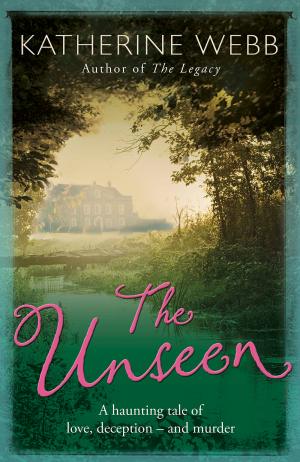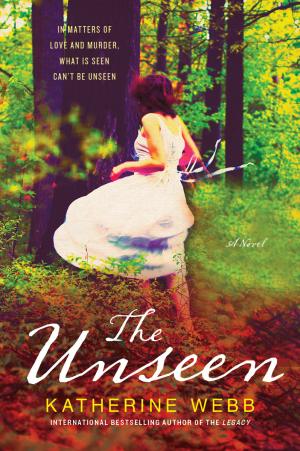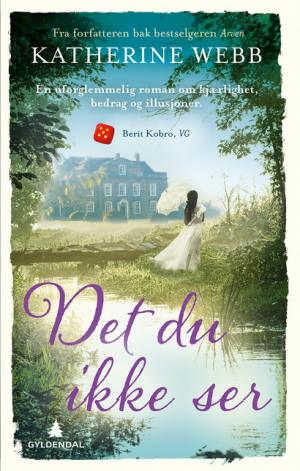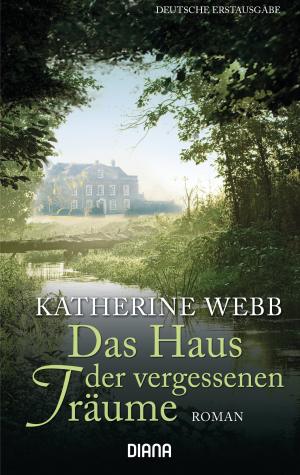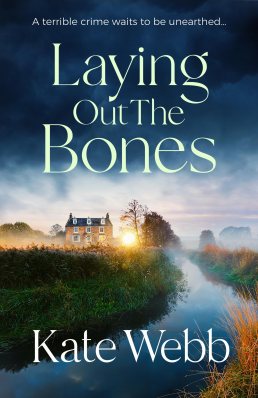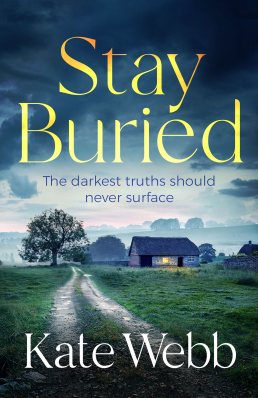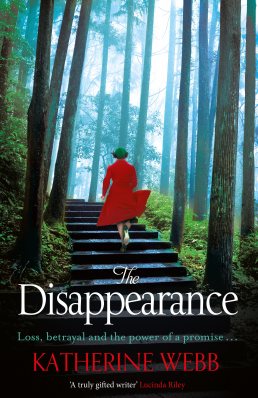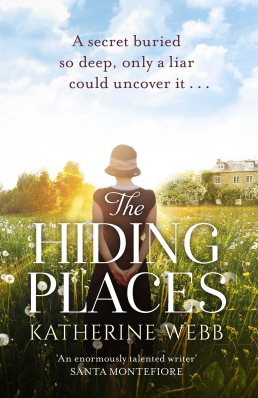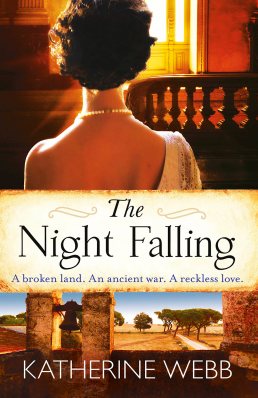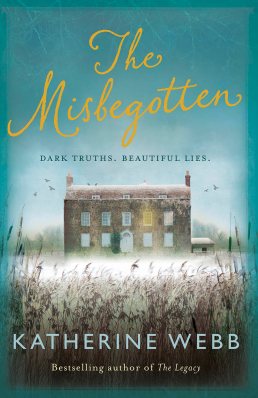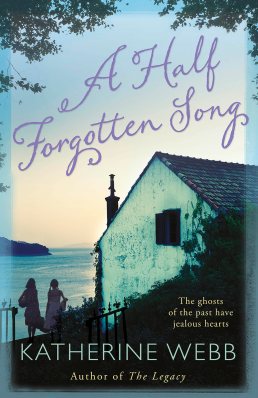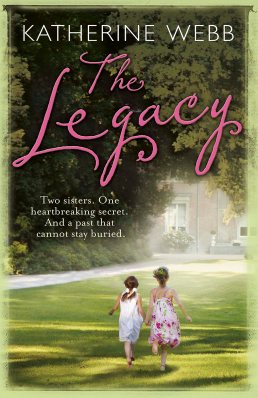The Unseen
A haunting tale of love, deception – and murder.
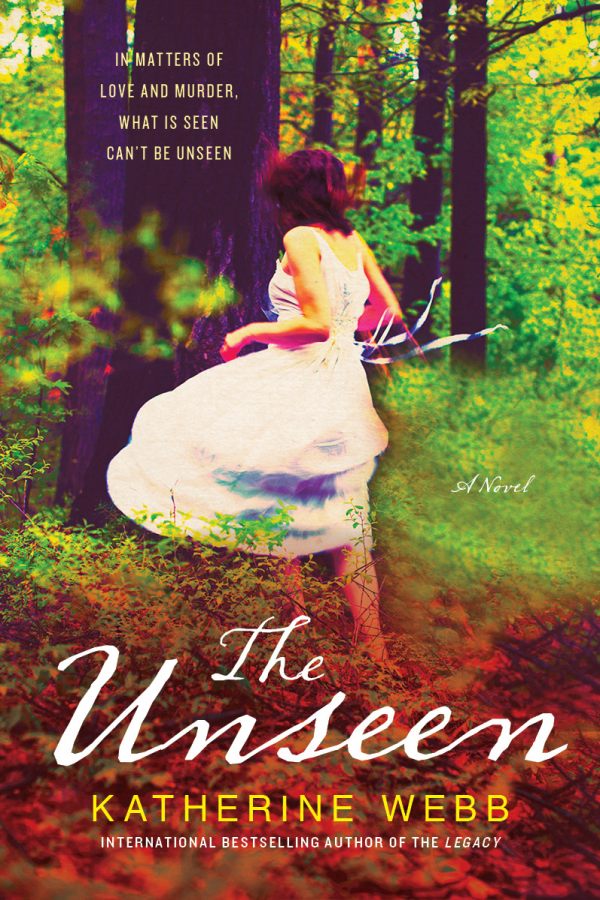
A Sunday Times Top Ten Bestseller
England, 1911. When a free-spirited young woman arrives in a sleepy Berkshire village to work as a maid in the household of The Reverend and Mrs Canning, she sets in motion a chain of events which changes all their lives. For Cat has a past - a past her new mistress is willing to overlook, but will never understand . . .
Then her husband invites a young man into their home, he brings with him a dangerous obsession . . .
During the long, oppressive summer, the rectory becomes charged with ambition, love and jealousy - with the most devastating consequences.
The germ of the idea that was to become The Unseen came from the case of The Cottingley Fairies – the famous photographs taken by two young girls in the north of England in 1917, which seemed to prove the existence of fairies. I had long been fascinated as much by the captivating pictures themselves as by the fact that so many well respected people at the time were prepared to believe that they were genuine – something which would be inconceivable today.
The Edwardian era has always been interesting to me for this very reason – that, even though it was only a hundred years ago, it was such a very different world to the one we live in now. Perhaps no other two years, set one hundred years apart, reflect such great change in the world as 1911 and 2011. The conventions determining religious belief, gender roles and society were virtually unshakeable for British Edwardians. However, it was a world teetering on the edge of a precipice, and on the edge of world war. Change was coming. Already, in 1911, the campaigns for universal suffrage and for votes for women were well under way, and the rising numbers of the professional middle classes were blurring the lines between the upper crust and the hoi polloi. Since the dawn of Darwinism, more people had come to question the precepts of established religion. Spiritualism, already hugely popular since the Victorian era, was still followed by a great many people. It was developing all the time, and paved the way for the growth of other new religions, like Theosophy, which described vast numbers of nature spirits – fairies – living alongside us.
This is the world in which I set The Unseen. I wanted to recreate life in 1911 for a cast of characters coming from differing backgrounds and holding differing beliefs. In a way, the vicar, Albert Canning, and his wife Hester, represent established English society and religion. Their rebellious, politically astute maid, Cat Morley; and the enigmatic theosophist Robin Durrant; represent the forces of change that had begun to challenge the old guard. But of course, I wanted these characters to be real people, not merely embodiments of their era. From repressed homosexuality to ambition; from sexual frustration to questions of identity, the four residents of the rectory in fictional Cold Ash Holt run the gamut of emotional upheaval during the hot, sultry summer of 1911. And not all of them can handle it. Breaking points are reached, and the result is a devastating crime.
The heroine of the book is really Cat Morley, a suffragette housemaid sent down from London after getting into trouble for her activities. For reasons I don’t want to spoil here, she questions her station in life and hates the fact that she should be condemned, from birth, to serve other people. Having worked ‘in service’ myself, I could well sympathise with Cat’s boredom and frustration. No one can argue that housework, though it can be satisfying, is ever exciting, or varied from day to day. I can only imagine what it might have been like for lower class women a hundred years ago to know that it was all they would ever do, day in and day out, for the rest of their lives. To live happily with so little control over their own destinies must have taken serious strength of character. For somebody like Cat who rejected her fate, who had stopped believing in the rules, it must have been all but intolerable.
The canals, water meadows and red brick villages to the south of Thatcham in Berkshire were the perfect setting for the novel. I was living in the area at the time, and the landscape in summer is lazy and lush – perfect for seeing fairies, if you were so inclined! I also wanted to show that, in the days when cars were still very much a rare luxury, Berkshire would have felt a long way from London. When Cat, born and raised in the city, is sent out to Cold Ash Holt, it feels like exile to her. Finally, I chose to write a contemporary storyline to accompany the historical. By setting it in 2011, I could emphasise that in only a century, life had changed almost beyond recognition for people in England. My central character in the modern strand, Leah, is a self-employed freelance writer who lives alone in her own flat. She supports herself; has a political voice; can take a lover if she pleases; remains unmarried without stigma… How fabulous and unattainable her life would have seemed to Cat Morley! The modern strand of the novel also represents my own fascination with uncovering the hidden histories of people and places. In the novel, Cat reflects upon the fact that she, like so many lower class people in 1911, was destined to vanish into history without trace. By having Leah uncover her story a hundred years later, I could at least give Cat a memorial, even if the story I have written her is not always a happy one.
In The Unseen, an Anglican vicar comes to believe in fairies; his wife comes to admire their maid; the maid conspires to attain her freedom; and the glamorous theosophist is forced to show his true colours. And as important as all the themes I’ve mentioned above, the story told in The Unseen shows that people, with all their frailties and foibles, fears and fascinations, change little throughout history.
Buy now
Loading feed...
Reviews for The Unseen
'This is an outstanding read. Towards the end every chapter appeared to be left on a cliffhanger, leaving me desperate to get back to it, and I felt quite moved by the end of it all. It's not a thriller (despite the murder), but it certainly thrilled me.'
shortbookandscribes.uk
'An engrossing and totally convincing piece of storytelling.'
YOU Magazine
'It's a novel that tackles a great deal: social ills, spiritualism, mystery, the fine line between obsession and madness. It maintains a lovely balance throughout, and made me at once want to rush ahead to find out what happened next, and slow down to savor the rich language. A delicious read.'
librarything.com
'Murder, deception, seances, and a page-turner mystery make this alluring novel required reading material for the summer... Katherine Webb has created an extraordinary mystery which takes readers into the past with a modern heroine who is relentless in her pursuit of the truth.'
freshfiction.com
'A haunting novel bursting with deception, jealousy and desire. This is a rattling good yarn for long winter evenings.'
Red Magazine
'...well-researched and full of rich characters, from the surly cook Sophie Bell to the wonderfully beaten-up, generous George. It is an amazing reminder of the plight of some women at the start of the twentieth century and, more than anything, gets you turning the page.'
Novelicious.com
'The tension is palpable from the very beginning of the novel. Webb is a deft hand at grabbing readers' attention.'
The Historical Novel Society
'Occult happenings, romantic passion and murder disrupt the peace of a Berkshire village in 1911 in this hauntingly good novel from the author of 'The Legacy'.'
Marie Claire Magazine
''The Unseen' by Katherine Webb, set in 1911 and 2011, has it all: love, murder, euthanasia and fake fairies. Depicting the tangled lives of a vicar's household, including a young, manipulative theosophist and a socially aware, suffragette housemaid, it is a compelling read. The present-day strand ties in well and does not impede the historical mystery, and the political subtext about women's rights and social mobility is a delight.'
Bertram's Booksellers






